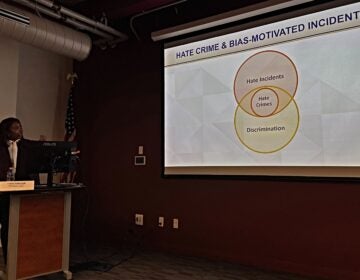Black women celebrate growing support for the CROWN Act in Delaware
Delaware appears poised to pass legislation protecting Black people with natural hairstyles from discrimination.
Listen 2:08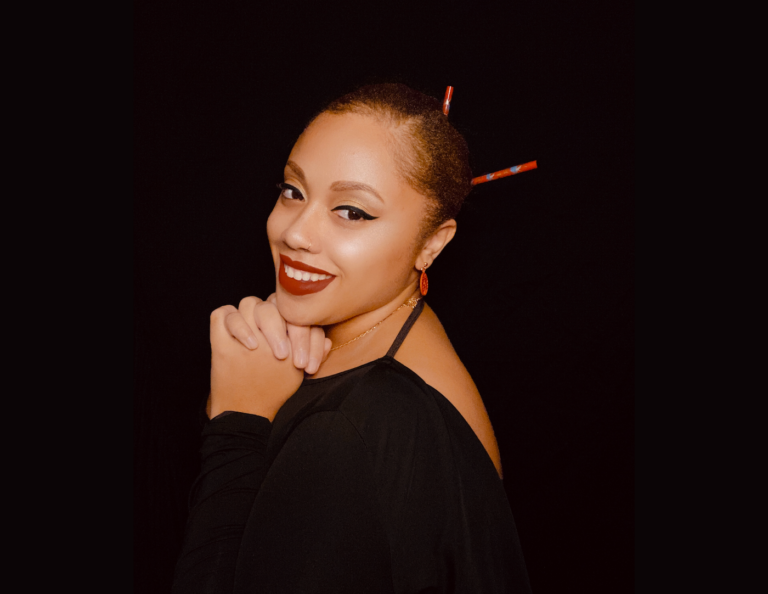
Reagan Campbell, 25, of Philadelphia, is a stylist who wants women to feel confident to wear their hair how they want. (Courtesy of Reagan Campbell)
After graduating from college in 2009, Thaïs Greca began searching for jobs and preparing for interviews.
That preparation always involved fretting about her clothes, and most importantly, her hair.
Greca, now 33, said as a Black woman, she always felt the need to straighten her hair to land a job. She said that’s because she internalized a societal belief that straight hair is more professional than natural locks. It was passed down to Greca by her mother.
“Straight hair has been deemed as being prepared for an interview — like wearing a suit — and it shouldn’t be deemed the same. My curly hair shouldn’t be compared to jeans and a T-shirt. But that’s kind of how it is, like, ‘Oh she didn’t try today,’” said the Wilmington, Del. resident.
“So every interview, I would always straighten my hair, and I would be so concerned with, ‘How does my hair look?’”
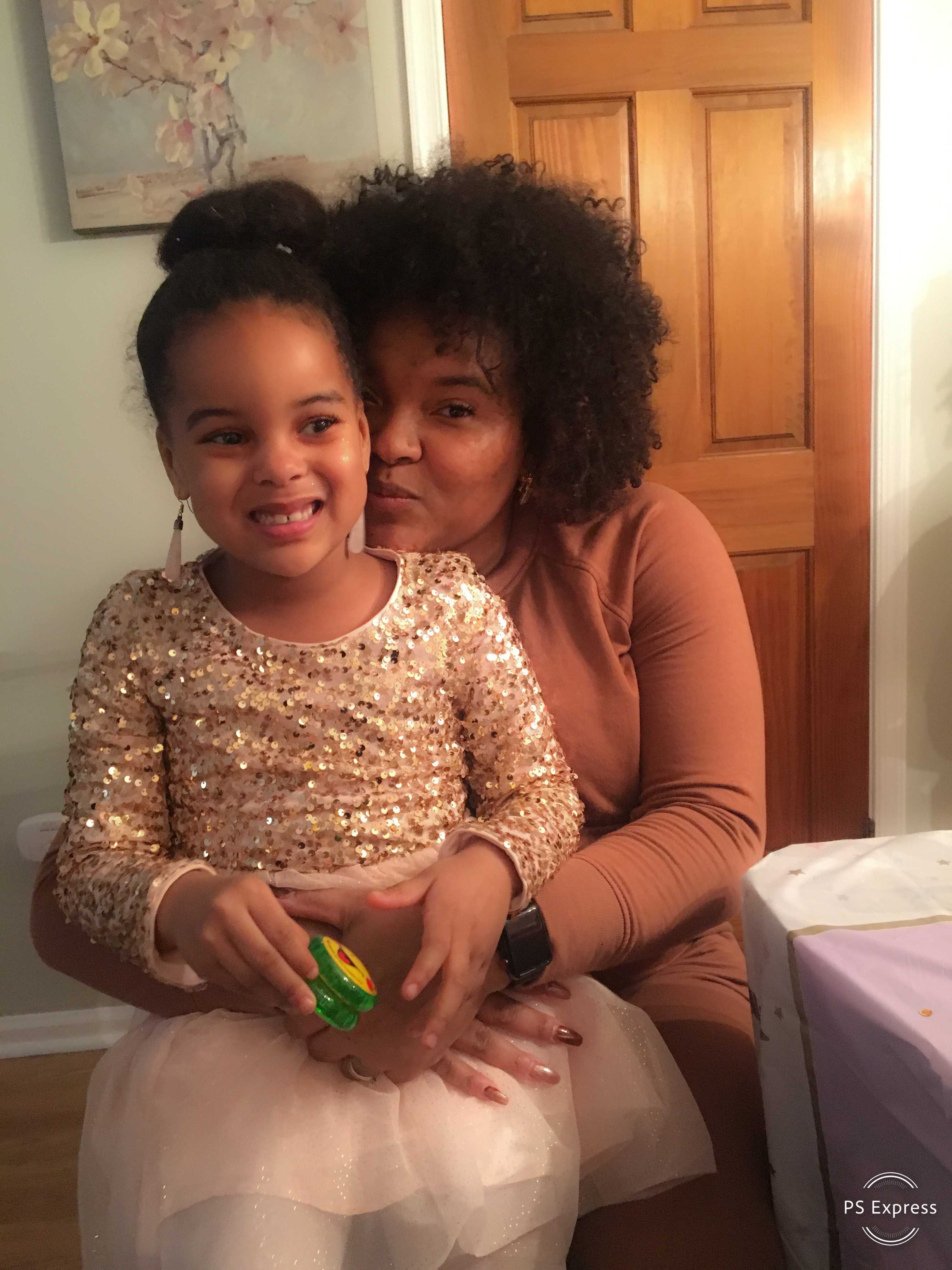
Greca, who now works as a project manager in the financial industry, said that belief system hasn’t changed.
“Me and my friends always joke, ‘Yeah, they’re going to get straight hair today [for the interview], they’re gonna get this bun, but then [once I get the job] I’m going to walk in with this Wash-N-Go,’” she said with a laugh.
Greca and other Delawareans hope that Black men and women will feel more confident wearing natural hairstyles at work now that state lawmakers appear ready to give final approval to a measure banning hair discrimination.
Delaware state senators unanimously passed the CROWN Act at the end of January. The legislation includes braids, locks, twists and other hairstyles or hair textures historically associated with race in anti-discrimination laws within Delaware code. The change means that employers can be held accountable if they harass or discriminate against someone for their hair. The bill is now awaiting action in the House.
“My initial reaction is that of joy. I love that for us. I think it’s important legislation, and I’m really happy it’s being enacted into law in Delaware,” said Taleah Kennedy-Alston, 33, of Bear.
“I identify as Black, I’m a woman, so the CROWN Act is a piece of legislation that’s really personal. It’s something I feel like shouldn’t have to be legislated, if I’m being quite honest, but the fact of the matter is there is considerable discrimination that Black women face due to our hair … It’s about feeling equal in the environment you’re in. I shouldn’t be made to feel that my hair is a burden or is so different it can’t be dealt with.”
Seven other states and the U.S. House of Representatives have passed some version of the CROWN Act, while more than 15 other states have introduced similar legislation. New Jersey lawmakers passed its CROWN Act legislation in 2019. In that state, a high school wrestler was forced to cut his dreadlocks at a match.
There have been a number of other hair-discrimination incidents reported in the national media; a 6-year-old student who was forced to quit a private Christian school in Florida; an 11-year-old sent home from school in Louisiana for wearing hair extensions, and a 19-year-old Banana Republic employee who was ordered to remove her box braids.
A recent study by Dove found that Black women are particularly affected by hair discrimination in the workplace. Black women’s hair is more likely to be perceived as unprofessional, Dove reports, and Black women are more likely to be informed of workplace appearance policies and to be sent home because of their hair.
The CROWN Act by itself makes clear that discrimination against an individual based on their hair texture and protective styles is not tolerated, allowing a person who does face discrimination to take action.
But one of the bill’s sponsors in Delaware, state Rep. Kendra Johnson, said she hopes the legislation also will highlight the issue of hair discrimination and that employers will take note.
“As an executive director, my hope always was, if this is a mandate, I’m going to make sure my team and the people who lead them are well-educated on the topic, so we can prevent ourselves from having a labor dispute,” said Johnson, who is the executive director of Elwyn, one of the nation’s oldest nonprofit organizations.
She said that education might mean including the topic of hair discrimination in cultural competency trainings.
“As an African American woman, I understood that people had these conscious and unconscious biases, and by participating in some type of training that educated you and spoke to culture competencies and culture sensitivities, in the end we were all better for that,” Johnson said.
“So while this legislation doesn’t say, ‘Hey, you all go out there and train up your people,’ I believe a good leader is going to see it and say, ‘I’m going to make sure my employees are educated and they know that this exists, and if that means we put things into place, that’s what we will do.’”
Because of her own experiences as a Black woman in the workforce, she knows what this legislation means to her constituents.
“I also imagine that once the workforce is educated it’s going to also provide such a sense of relief for Black women, who for so long have felt they have had to assimilate, to have straight hair, or not have any hair that looked too ethnic when they went on that job interview, or just had a particular job in general because of the stereotypes associated with having your beautiful natural hair,” Johnson said.
“I have been that professional woman who knew that, ‘Alright, I can’t necessarily say that the people I am going to sit in front of will look at me differently if I am wearing my natural hair, however, that’s not a risk I’m willing to take,’” she added. “So I did not take those types of risks at all. I did what I needed to do to make sure I got the job. Because there were no protections, and no one was talking about the elephant in the room: Black hairstyles.”
The mental and physical toll of hair discrimination
Taleah Kennedy-Alston of Bear works in the entertainment industry as a singer, dancer, actor, and model, and has interacted with hair stylists who do not accept or do not know how to work with curly hair.
“From theater, to movies, to modeling, I have had stylists, I guess I would have to describe it as backhanded questions, people being completely clueless as to how to handle my hair, refusing to style it, and then it falls to me, and of course, I am not a professional stylist,” she said.
“I have had people ask, or I guess you could say demand, ‘Straighten your hair.’ Of course, if you straighten your hair too many times you lose your curls, it’s damaging to your hair. So with the CROWN Act, maybe it will cut down on those experiences, because it starts to make you feel really insecure, and I don’t think you should feel insecure about hair.”

Kennedy-Alston calls herself “a bit of a rebel,” and said she often refuses to budge to demands to straighten her hair if it’s unnecessary.
“If it’s a client I’ve worked with before, and I feel like there’s not really pressure, or there’s a type of look that would look better with straight hair and there’s collaboration I will consider it,” she said.
“But I’ve never been one of those people who can be pushed into it, and I market myself in a way through my portfolio that shows, ‘This is what you’re going to get.’ So a lot of my pictures, if not all of my pictures, for example, if someone is looking for a model for a certain product, my hair is not straight in that picture, so there’s no guesswork. But of course I have friends in the industry who don’t feel comfortable doing that or they just feel like, ‘Hey, I’m not going to get any work if I do that.’ It’s definitely a privilege where I’m like, ‘It is what it is, take it or leave it.’”
Kennedy-Alston adds that she also hopes that the CROWN Act will encourage increased knowledge about Black hair in cosmetology school.
Reagan Campbell is a personal business stylist in Philadelphia. Her business C Suite Styling focuses on advancing Black women in business through style.
The 25-year-old said several of her clients have experienced discrimination in the workplace. Sometimes when a Black employee puts a lot of effort into their hair, they’re accused of being vain, Campbell said.
“As Black people, we culturally identify ourselves with our hair. I feel like out of everything that was stripped from us when we were brought over, our significance with our hair has remained,” she said.
“Some of my clients are in offices that are predominantly white or just with people who don’t understand how culturally significant hair is to other people. So they’ll receive comments like, ‘Well, you know, this is work, not a runway,’ … and that sort of insensitivity tends to come in because there’s not the understanding about how culture is tied to representation of your hair.”
Campbell said she believes the CROWN Act will improve the overall workforce experience.
“I feel like when a woman is able to come into the office how they want to represent themselves and not have to think of the backlash they might get because of how they wear their hair or how they might put on anything else they have on, I think it boosts their morale — compared to when you have to overthink how you’re going to come in, and you’re a bit more tense. So I feel like your performance might lack because you’re not comfortable where you work,” she said.
The pressure on some Black men and women to alter their hair to be accepted can have both mental and physical effects, said Marisa Peal, a licensed cosmetologist and natural hair professional from Philadelphia.
“In addition to trying to morph and change your identity to fit inside this one-size-mold society wants you to look like — this image of having hair that’s more silky or pressed straighter — for people who have naturally curly, naturally kinky, coily or naturally textured hair, it becomes detrimental to the hair,” said Peal, who also has a beauty, hair and style blog.
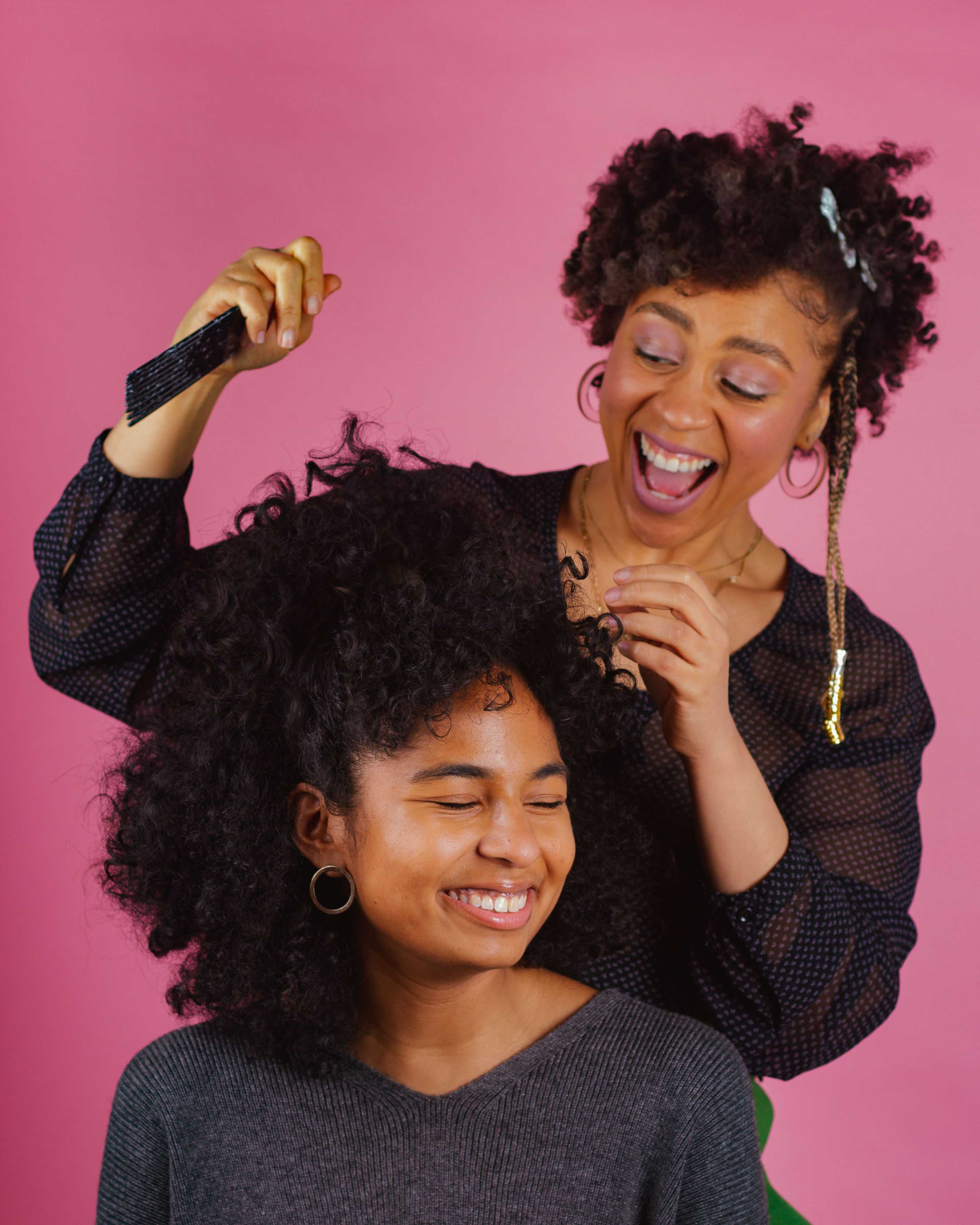
“You can either permanently chemicalize the hair, relaxers to permanently straighten the hair to make it look straighter and give it the illusion of being silkier. Or, there’s another option where you can do something that’s temporary — but using styling tools like a flat iron, over time excessively using those tools, it breaks down the disulfide bond of the hair for curly and textured and kinky hair textures, and in turn, it damages it, so it no longer acts the way it should in its natural form. It loses shape, it becomes excessively broken, it falls out, there’s a lot of shedding,” said the 30-year-old.
“So there’s an emotional component too. No one should ever feel like they have to choose whether they’re being their authentic self or changing something that’s naturally part of their culture and who they are just to acquire a job or to obtain a position or be hired at a certain job or receive a scholarship.”
Peal added that hair discrimination also can affect someone economically if they can’t get hired for a position due to a false perception that African American hairstyles are unprofessional.
Pennsylvania lawmakers last year introduced its own CROWN Act legislation, which is yet to be voted on. Over the course of the pandemic, Peal and Campbell have co-hosted virtual events in support of the CROWN Act in Pennsylvania and nationwide.
Those in states that have passed the CROWN Act say it’s had a major impact. Shaquierra Brown, 25, of Merchantville, NJ, said its passage in her state in 2019 was “liberating.”
“I think it’s great for women and men to be able to wear their hair the way they would like to without fear of discrimination … I see a lot more people wearing their natural hair in their curly state or in braids a lot more,” she said.
“For me, it just meant I could be more myself without having to fear what other people might be thinking, and whether or not I could potentially not be able to get a job, or if someone was able to say negative things about my hair, I might have to manipulate it or change it to fit the societal norms,” Brown added.
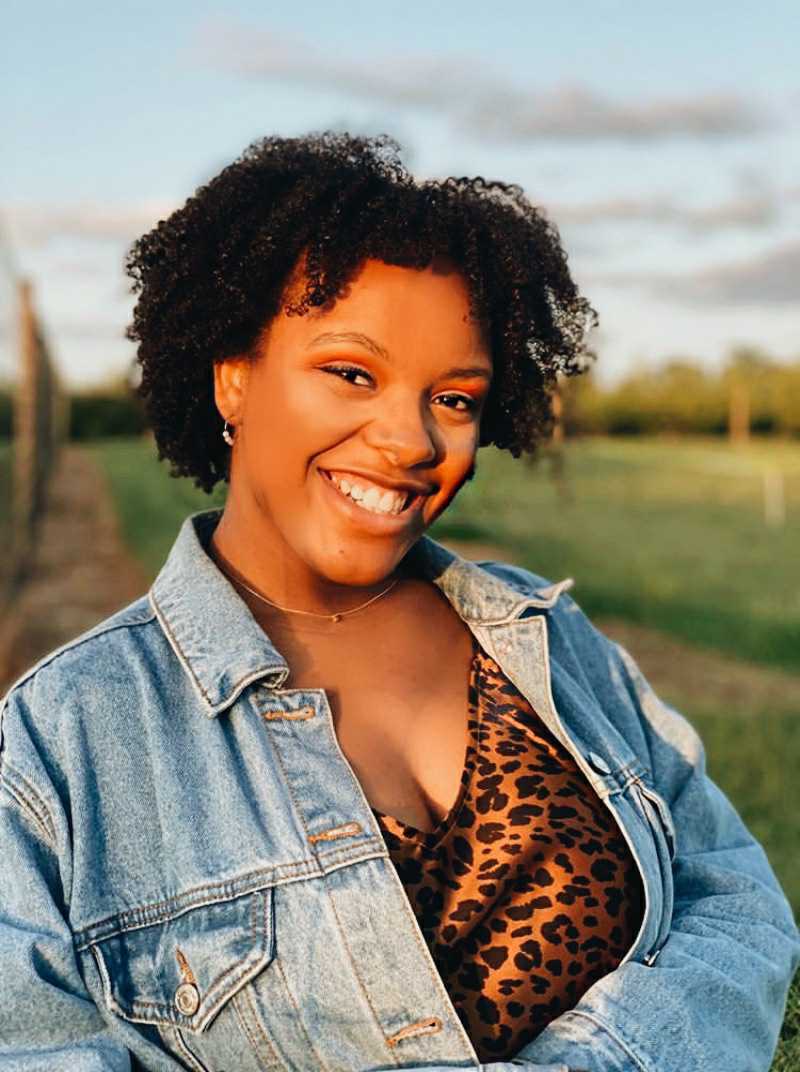
“I actually went full on natural right before the CROWN Act was passed. Before that, I would wear my hair pretty much always with weaves, and I would straighten it a lot, which caused a lot of damage to my hair just trying to fit into how everyone else looked. I always thought that was prettier. Seeing a lot more people wearing their natural hair and seeing this law passed has definitely made me feel more comfortable to wear my hair in its natural state, and it’s been awesome to go on that self-love journey through my hair.”
Changing the mindset
Once the CROWN Act passes in Delaware, Thaïs Greca said she will likely continue to straighten her hair for certain occasions.
“I don’t want to say it’s too late for me,” she said with a laugh. “But I don’t know if I can get my mind out of straightening my hair or feeling like I have to straighten my hair.”
But Greca said she does believe her daughter will have a different experience when she grows up, and she will never tell her she must straighten her hair.
“I really think it’s a change in the mindset, and I think I might be too far gone, but I am hoping that the next generations won’t feel the pressure we have felt, and generations before us have felt, because it was passed on to me from my mom and that’s because of society,” she said.
Greca adds that she believes there’s a balance to strike, however.
“You can look professional and have natural hair, but I think there’s going to be a gray area where this person just didn’t look kempt,” she said.
“You should still make sure you look okay. I don’t want an Afro to be deemed as it doesn’t look okay. But if you lay down, and the Afro is smashed on one side, and you just walk out, and you think everybody’s targeting you because you have an Afro, that’s not true. So, it’s going to be a gray area still about what’s professional and a natural hairstyle, and what’s not [professional], but we’ll get there too. This is a first start, which is good.”
Campbell said changing outdated opinions about hairstyles will take more women trailblazing the way for others.
“I know for some of the women I’ve worked with in the past, they will say ‘Oh, I did go to a brother or sister office in another location and I did see someone there of the same ethnicity and she wore her hair like this and then it made me feel like I could do it too,’” she said.
Peal added that in addition to advocating for the CROWN Act, she also wants to instill a sense of pride within the African American community.
“Being able to pass down our routine beauty secrets and recipes from one person down to your children, because the more you know for yourself and have the knowledge of yourself you can pass that down to your family members and children when it comes to taking care of your hair, taking care of your mental health and wellbeing. And all these things play a larger role in how you view yourself and how you are a reflection of yourself to the world,” she said.

Get daily updates from WHYY News!
WHYY is your source for fact-based, in-depth journalism and information. As a nonprofit organization, we rely on financial support from readers like you. Please give today.






